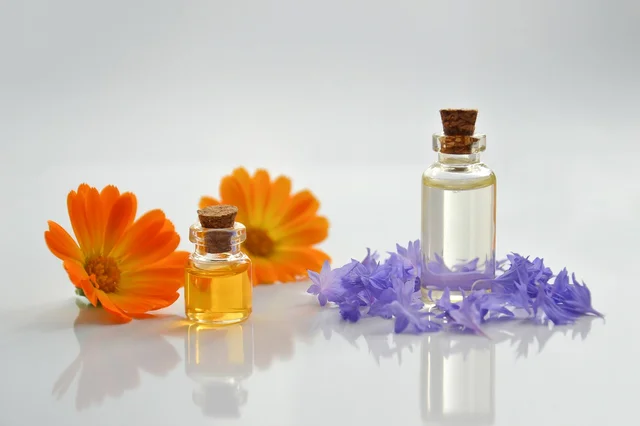Calendula is a flowering plant.
Calendula is a herbaceous flower used in cooking, medicine and cosmetics for hundreds of years. Calendula is native to the Mediterranean area and grows well in soil that receives full sunlight. Calendula flowers are bright orange or yellow, have five petals, and contain many stamens. Calendula is used for treating skin problems, promoting wound healing and reducing Inflammation .
Calendula has been used as a medicine since ancient times. The Romans, Greeks, and Egyptians used it to treat various ailments including inflammation, fever and wounds. Calendula, which was widely used throughout medieval Europe was thought to possess magical properties. Calendula has been used in modern times as a herbal medicine for treating skin problems, inflammation, and wounds.

Calendula: Its Purported Health Benefits
Calendula is known to have healing properties for skin problems. Calendula is known to have anti-inflammatory, antioxidant properties that can reduce irritation, itching, and redness. Calendula can be used as a treatment for minor scrapes and cuts, because it speeds up the healing.
Calendula has also been shown to be helpful for people suffering from eczema or psoriasis. Calendula can be used to reduce inflammation, itching and redness by applying a calendula-based cream. Calendula can also reduce scars and stretchmarks.
Calendula is also effective at treating other minor infections such as athlete's feet, cold sores and yeast infections. Calendula's antibacterial and antifungal properties can reduce the symptoms of a cold sore and accelerate healing.
Calendula: Experts' and professionals' opinions
Calendula has been proven to be safe and effective in treating minor skin problems, infections, and wounds. World Health Organization says that calendula "is a safe and efficient treatment" for many skin infections and conditions.
The National Center for Complementary and Integrative Health also states that some research has shown that calendula may help to reduce inflammation and the appearance of stretch marks and scars. More research is required to confirm the findings.
Calendula: How to Start?
Before using herbal remedies, you should consult with your doctor if you want to use calendula as a skin treatment. Calendula is available in creams, teas, tinctures and ointments. Calendula is applied to the skin directly for a wide range of skin problems, while tea and tinctures can also be consumed.
Calendula should be used according to the directions on the label. In general, the cream should be applied three times per day or according to your doctor's instructions. It is recommended that you take three teaspoons of tinctures or tea every day.
Be sure you buy calendula from a reliable source. Look for products free of additives and preservatives.
What are the Side Effects and Drawbacks?
Calendula can be used either topically or orally by most people without any side effects. There are some side effects that you should be aware of. Calendula can cause an allergic reaction in people who are allergic plants of the daisy-family. Calendula can also interact with some medications. It is best to consult your doctor first before you use it.
Calendula can also cause irritation of the skin in certain people. Stop using the product and contact your doctor immediately if this happens. Calendula is also not recommended for women who are pregnant or nursing, because there has not been enough research done to prove its safety.
Conclusion
Calendula has been used as a herbal medicine for hundreds of years to treat skin problems, infections, and wounds. Calendula has been shown to reduce inflammation, redness and itching. Calendula can speed the healing process, reduce scars and stretchmarks. Before using herbal remedies, it is best to speak to your doctor and purchase the products from a reliable source.
Calendula's primary benefits are its ability to relieve inflammation, redness, and itching. It can also help to speed up healing and lessen the appearance of stretch marks and scars. When used orally or topically, calendula can be considered safe by most people. However, there are some potential side effects.
.